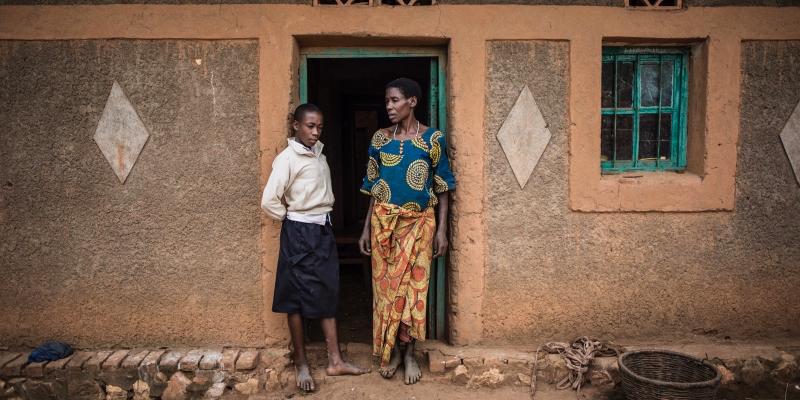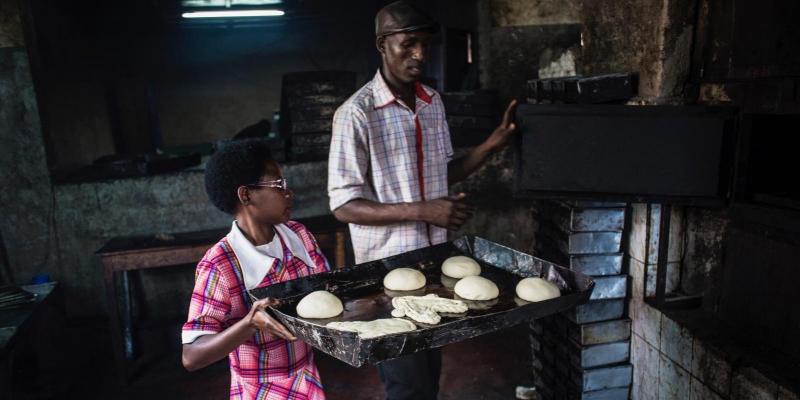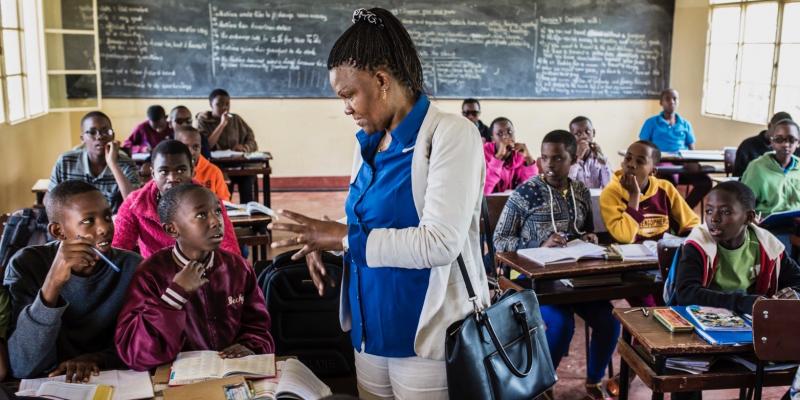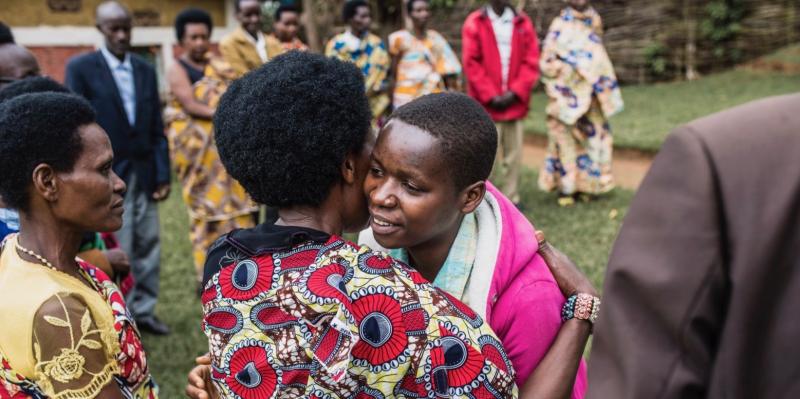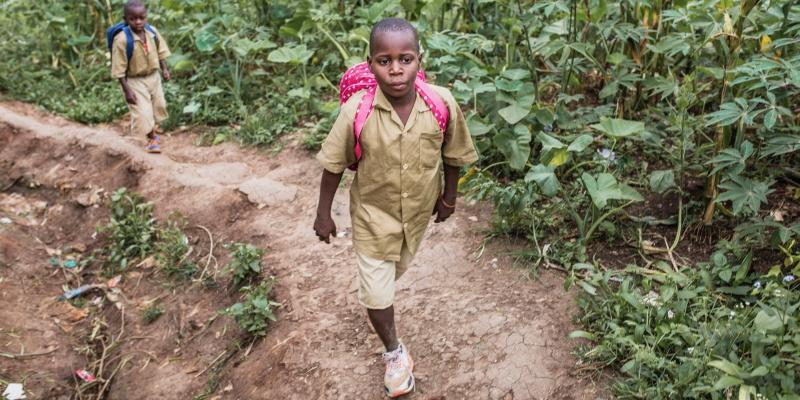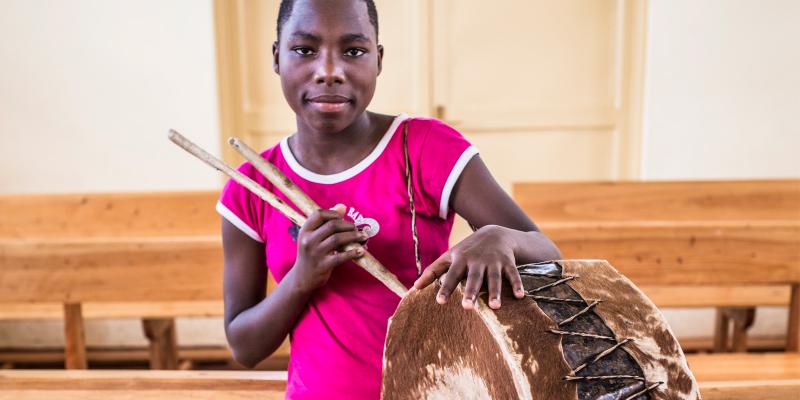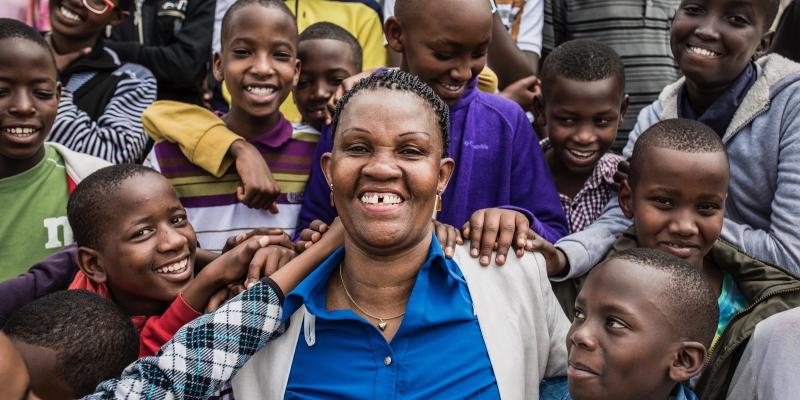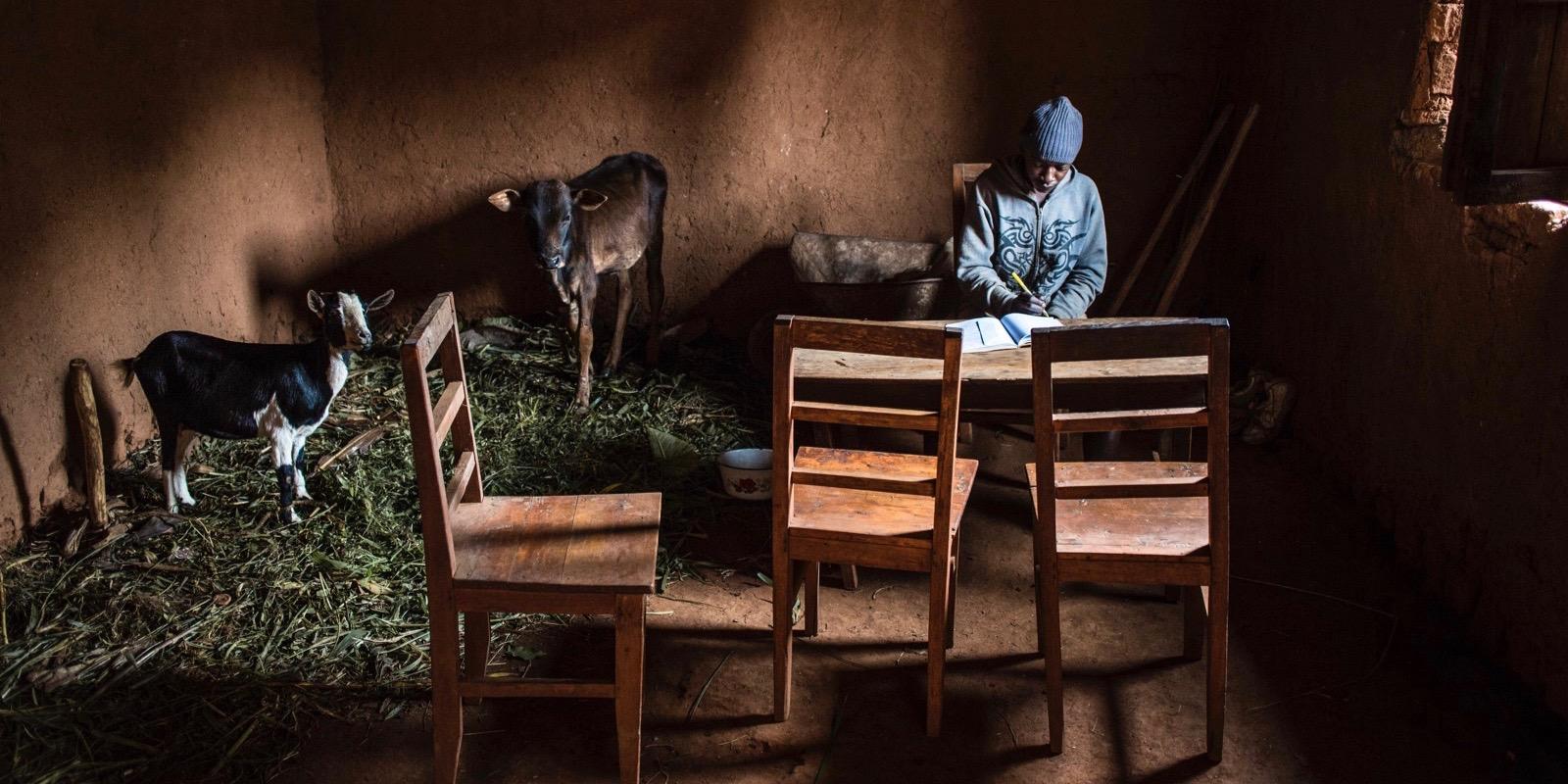
Celestin’s dad didn’t want to know him, and he was bullied at school. But no-one teases him anymore. Instead he is respected for his faith in the future and his ability to earn money from his animals.
One day when he was eight years old, Celestin asked his mum what the pills were that he took every day. “You have a virus in your body called HIV. If you don’t take your pills, you could get AIDS and die,” explained his mum Marie, and added that she also had the virus. And Celestin’s dad had it too.
Celestin’s dad accused Celestin’s mum of infecting him. It was probably the other way round, but his dad forced Celestin and his mum to move out. Celestin and his mum had to keep moving to different villages for a couple of years. Celestin’s dad’s relatives didn’t want them to live with them, but, as his son, Celestin is entitled to inherit some of his dad’s land.
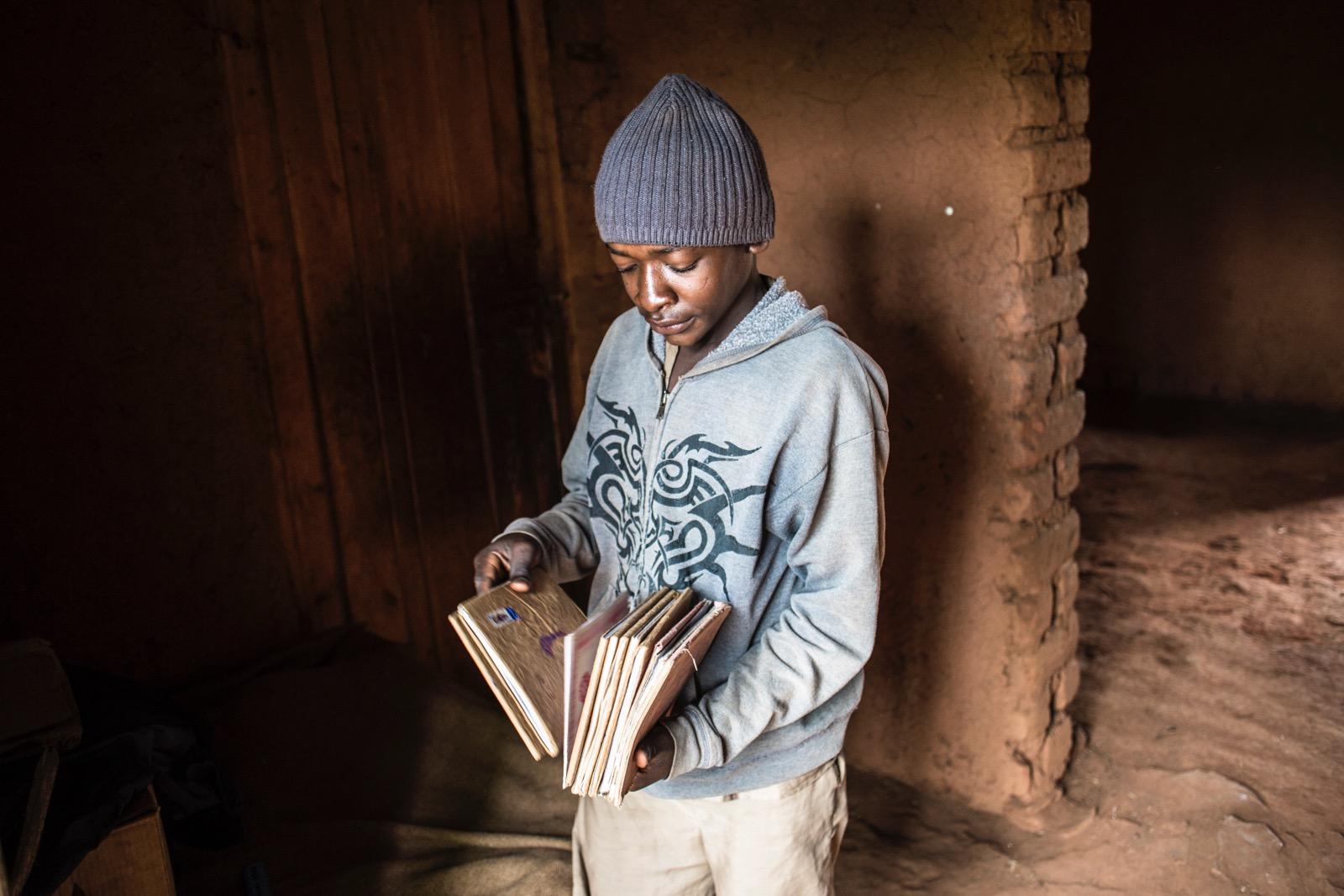
Celestin looks after his schoolbooks and wraps them carefully in protective paper.
Just like everyone else
At the hospital, Celestin and his mum met a person from FVS Amade, who said that they could get help. FVS Amade’s lawyers helped Celestin get a house from his dad’s relatives. The house is next door to his grandma Rachel. FVS Amade also made sure that Celestin got to go to school.“I didn’t tell anyone that I was HIV positive, but one of dad’s relatives worked at the school and told everyone that I had the virus,” says Celestin Suddenly no-one wanted to play with him and he had to sit on his own in the classroom.
Following an argument, Celestin and another boy were called to the headteacher’s office. The teachers said that Celestin had to quit school. His relative was the worst of all. But FVS Amade explained to the headteacher that Celestin was taking medication and that HIV isn’t spread just by playing with other children. So the headteacher said he could remain in school.
“No-one’s teased me since that day. They also explained to all the children at school what HIV is and that I’m just like all the other children,” says Celestin.
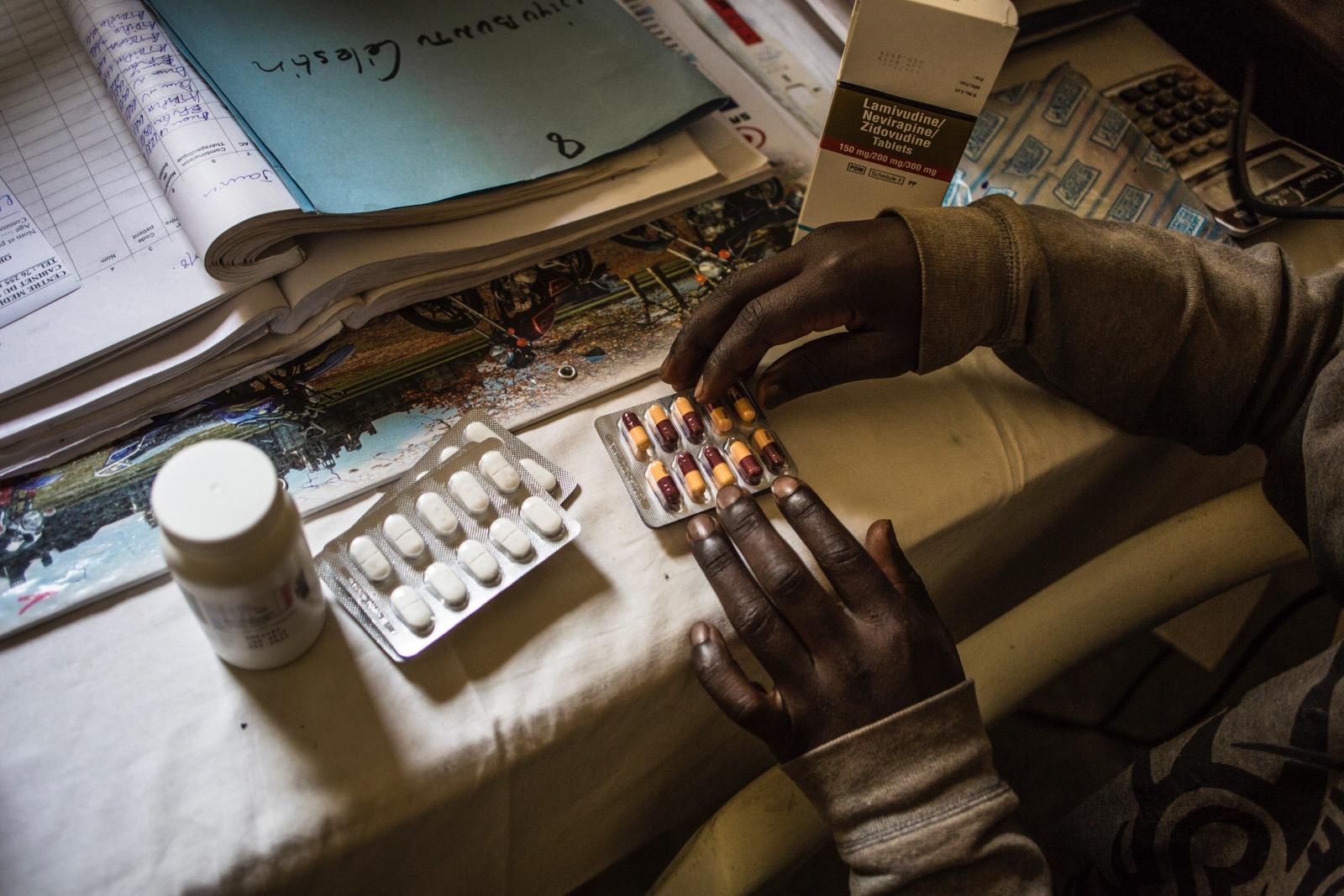
Vital medicine: The antiviral drug that Celestin takes every day means he can live a long life without getting AIDS.
One hen becomes five
Not all Celestin’s relatives were mean. One day, an aunt gave him a hen. When the hen laid ten eggs, Celestin only sold five of them. The five eggs he saved became five chicks. He bought feed for the five chicks using the money from the five eggs he sold. They would in turn grow up and produce new eggs.At school, Celestin likes maths. His hens gave him the idea of investing the money he ear-ned to buy more animals. Then one of the hens got sick and died. It infected the others, and they died too.
But Celestin didn't give up. He had saved money and bought new hens and a cockerel. He used the money he earned to buy feed for his hens and to help his mum.
Moles in exchange for sheep
Many of the farmers in the village have problems with moles eating their crops. Anyone who can catch moles can earn lots of money and Celestin has made his own traps.“I caught 25 moles in a day. I got up early in the morning and put the traps out. Then I went to school, and when I got home there were moles in several of the traps.”
Celestin used the money he earned from catching moles to buy a sheep. He raised the sheep, sold it and then bought a goat with the money. Then he bought another goat and a new sheep.
The goats and the sheep produce manure for fertiliser, which Celestin sells at the market. Sometimes farmers come to his home to buy fertiliser.
More and more animals
Celestin wants to use the money to buy more animals and feed for them. He also helps his mum and pays for his own clothes and school things.Celestin’s mum is a member of the village’s solidarity group. She’s been given a loan so she can grow fruit and vegetables, which she sells at the market. She has also been able to buy a cow and a calf.
“I feed all the animals before I go to school. When I get home, I look after them again. Then I do my homework before it gets dark.”
Celestin likes fixing bikes and he often helps a bicycle repair man. One day he hopes to have his own local bicycle workshop and maybe even buy his own motorbike.
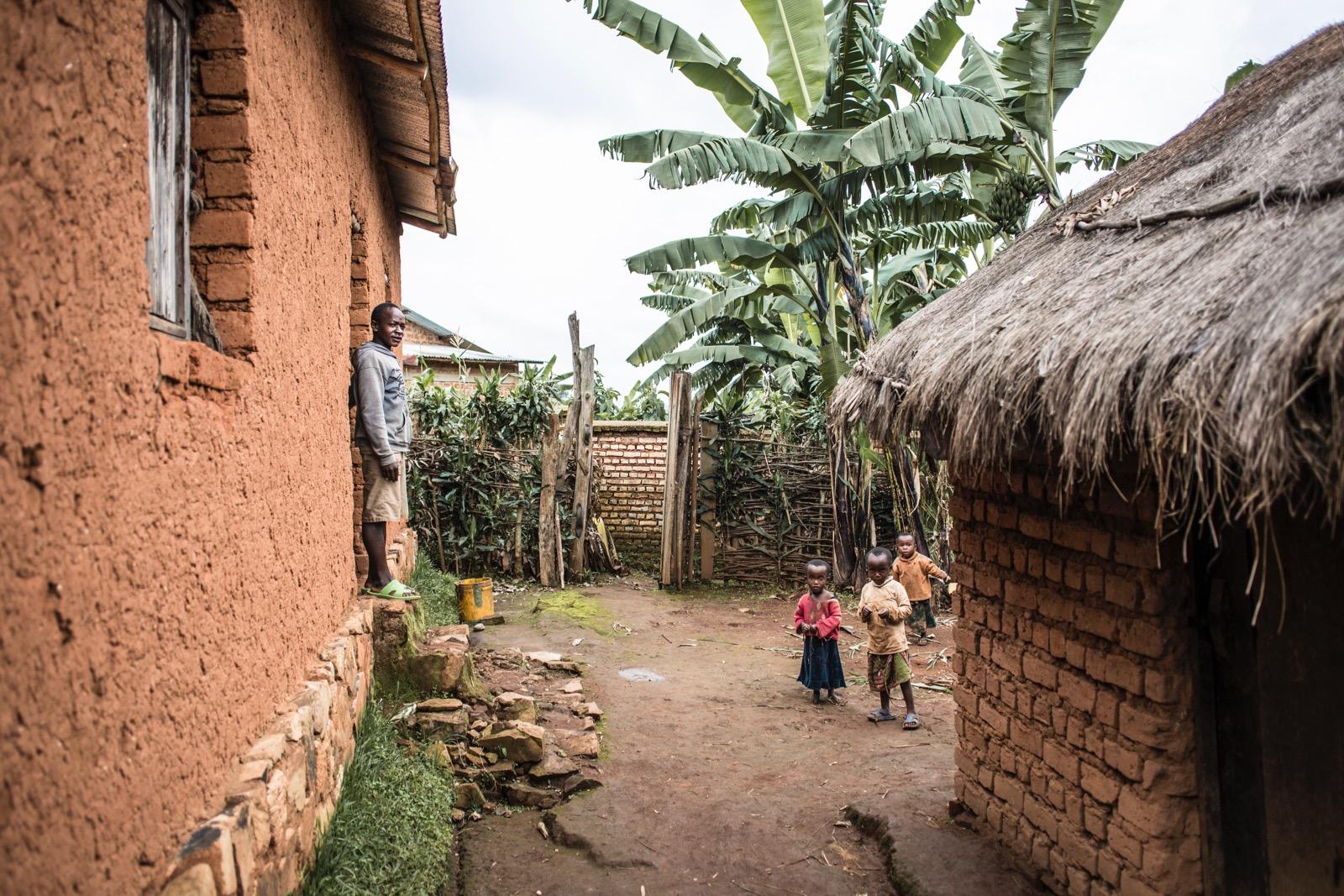
Celestin in front of the house that FVS Amade’s lawyer helped him get from his dad’s relatives.
FVS Amade helps people who are HIV positive
Pregnant women can pass the HIV virus on to their baby when it’s born. HIV can also be passed on when a person with the virus has unprotected sex with another person. Blood from a person carrying the HIV virus can also infect another person. There is no cure for HIV yet, but antiviral drugs can stop the virus from developing into AIDS, which is fatal.You can live your entire life with HIV, as long as you take the antiviral drugs. Around 84,000 people in Burundi are HIV positive. Two thirds of them take antiviral drugs. The number of people living with HIV in Burundi has dropped hugely over the past few years. FVS Amade runs two clinics offering treatment to people with HIV.
Related stories
Långgatan 13, 647 30, Mariefred, Sweden
Phone: +46-159-129 00 • info@worldschildrensprize.org
© 2020 World’s Children’s Prize Foundation. All rights reserved. WORLD'S CHILDREN'S PRIZE®, the Foundation's logo, WORLD'S CHILDREN'S PRIZE FOR THE RIGHTS OF THE CHILD®, WORLD'S CHILDREN'S PARLIAMENT®, WORLD'S CHILDREN'S OMBUDSMAN®, WORLD'S CHILDREN'S PRESS CONFERENCE® and YOU ME EQUAL RIGHTS are service marks of the Foundation.



